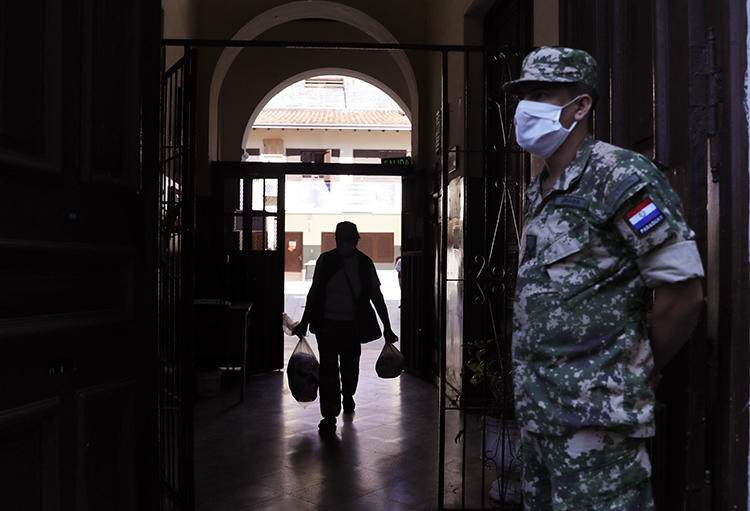Miami, May 6, 2020 — The Committee to Protect Journalists today commended the swift actions by Paraguayan authorities to investigate the hacking of journalists Juan Clari Arias and Jorge Torres’ phones, and urged them to see the investigation to its conclusion and hold those responsible to account.
Last month, hackers accessed the phone data of Arias and Torres, reporters for the journalism conglomerate Grupo Nación, according to Arias, who spoke to CPJ in a phone interview, and several tweets by Torres.
On April 28, police officers acting alongside agents from the prosecutor’s office detained two suspects accused of executing the hacking, and charged them with criminal association and undue access to data and information systems, according to press reports and a tweet by the prosecutor’s office. The pair are also accused of hacking the phone of independent congressman Carlos Antonio Rejala, according to press reports.
On April 30, Gerardo Fabián Martí, a lawyer affiliated with the opposition Authentic Radical Liberal Party who authorities allege hired the perpetrators, turned himself in after an arrest warrant was issued for him and his home was raided by police, according to press reports. The three suspects remain in detention, Arias told CPJ.
Arias said that all of the data from his cell phone was accessed, including the identities of sources developed over his 29 years as a journalist. “That’s the biggest damage they’ve caused me,” Arias told CPJ. “The damage from a professional point of view is devastating. I am now trying to rebuild my network of sources.”
“Paraguayan authorities should continue their investigation to get to the bottom of the hacking of the phone data of journalists Juan Clari Arias and Jorge Torres,” said CPJ South and Central America Program Coordinator Natalie Southwick, in New York. “Paraguay must send an unequivocal message that it will respond forcefully against actions that affect the confidentiality of journalistic sources, a cornerstone of press freedom.”
Arias told CPJ that he noticed on April 17 that all of the content from his phone was missing, and that he could not place any calls. He filed a complaint with the Personal telecom company, and a company representative told him that his phone had been “cloned,” meaning someone had duplicated all of its data, he said.
The representative told him that Personal was investigating the incident and would file a complaint to the prosecutor’s office, Arias said. Arias also filed a complaint to that office on April 18, a copy of which CPJ reviewed.
On April 24, Torres posted on Twitter that his cell phone had also been cloned, and that someone had attempted to access his Facebook account.
Both journalists had recently reported on alleged corruption relating to contracting by the Ministry of Health, alleging that contracts went to shell companies run by a single family, known as the “Clan Ferreira.”
Martí called Arias multiple times to dispute those allegations on behalf of the Clan Ferreira after the journalist reported on the alleged corruption on his daily television program “Two in the City” on April 13, Arias told CPJ.
Arias told CPJ that the cybercrime unit of the prosecutor’s office had swiftly investigated his case. He said that the prosecutor’s office has also arranged police protection of his home
CPJ emailed the prosecutor’s office for comment, but did not immediately receive any reply.
Martí denied all allegations against him, and his lawyer claimed there might be political reasons behind the accusations, according to press reports.
Yesterday, the Ministry of Health announced that it was rescinding the contracts with the companies affiliated with the Clan Ferreira, according to press reports.
[Editors’ Note: This article has been changed to correct the spelling of “Clan Ferreira.“]
